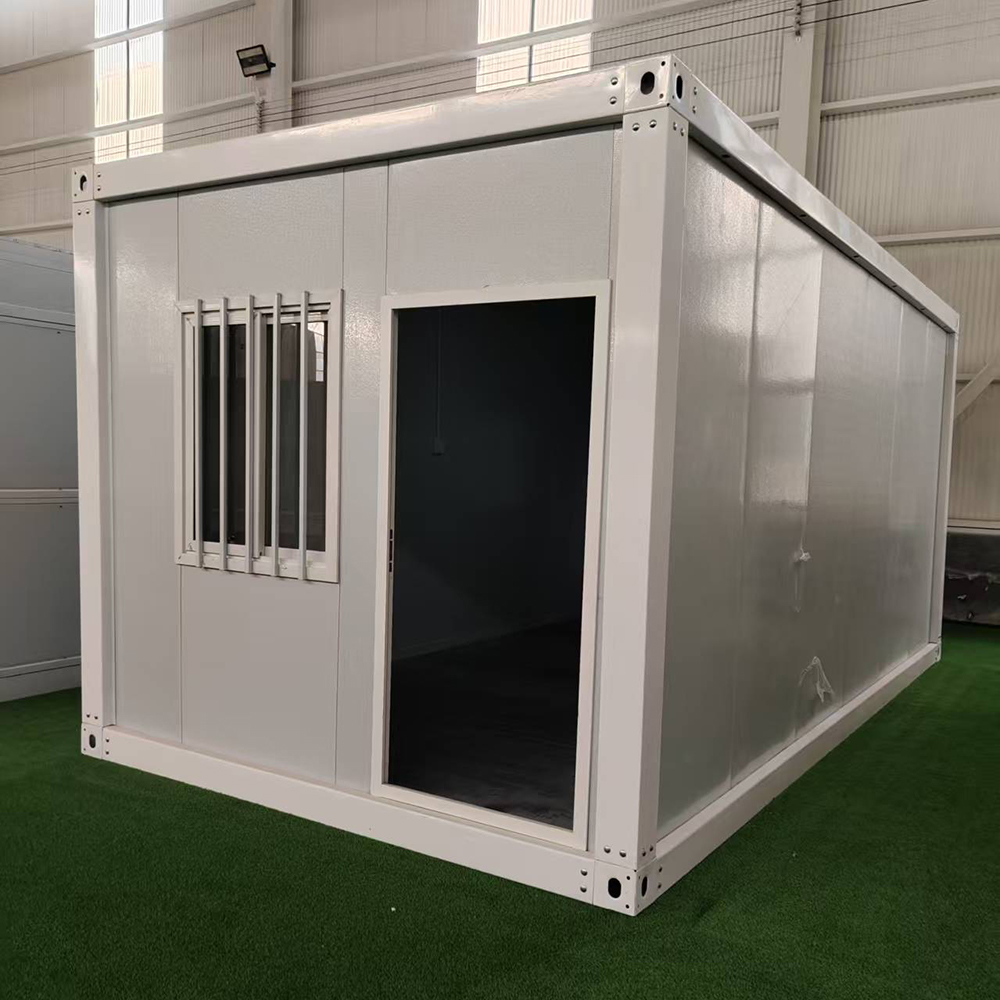-
E-mail
Austin120521@outlook.com -
E-mail
sales@jujiuhouse.com -
Telephone
+86-17864099991 -
Telephone
+86-17854044442
- Chinese
- French
- German
- Portuguese
- Spanish
- Russian
- Japanese
- Korean
- Arabic
- Irish
- Greek
- Turkish
- Italian
- Danish
- Romanian
- Indonesian
- Czech
- Afrikaans
- Swedish
- Polish
- Basque
- Catalan
- Esperanto
- Hindi
- Lao
- Albanian
- Amharic
- Armenian
- Azerbaijani
- Belarusian
- Bengali
- Bosnian
- Bulgarian
- Cebuano
- Chichewa
- Corsican
- Croatian
- Dutch
- Estonian
- Filipino
- Finnish
- Frisian
- Galician
- Georgian
- Gujarati
- Haitian
- Hausa
- Hawaiian
- Hebrew
- Hmong
- Hungarian
- Icelandic
- Igbo
- Javanese
- Kannada
- Kazakh
- Khmer
- Kurdish
- Kyrgyz
- Latin
- Latvian
- Lithuanian
- Luxembou..
- Macedonian
- Malagasy
- Malay
- Malayalam
- Maltese
- Maori
- Marathi
- Mongolian
- Burmese
- Nepali
- Norwegian
- Pashto
- Persian
- Punjabi
- Serbian
- Sesotho
- Sinhala
- Slovak
- Slovenian
- Somali
- Samoan
- Scots Gaelic
- Shona
- Sindhi
- Sundanese
- Swahili
- Tajik
- Tamil
- Telugu
- Thai
- Ukrainian
- Urdu
- Uzbek
- Vietnamese
- Welsh
- Xhosa
- Yiddish
- Yoruba
- Zulu
- Kinyarwanda
- Tatar
- Oriya
- Turkmen
- Uyghur

China expandable house container
Exploring the World of China’s Expandable House Containers
The buzz around China expandable house container solutions is anything but surprising. With the rapid urbanization and housing demands, these innovative, portable homes have become a game-changer. However, choosing the right solution isn't as straightforward as it seems. What's real, what works, and who should you trust? Let's delve into these questions and explore some practical insights.
The Rise of Expandable House Containers
In recent years, China expandable house containers have surged in popularity. They're lauded for their versatility and ease of transport. However, many don't realize that not all container houses are created equal. There are variations in material quality, insulation standards, and even the craftsmanship involved. Companies like Shandong Jujiu Integrated Housing Co., Ltd. lead the industry in providing high-quality products.
From personal experience, one major advantage is their adaptability. These containers can be used in various environments—from urban jungles to remote outposts, essentially anywhere you can pitch a tent. Shandong Jujiu offers solutions that are both durable and adaptable, crucial qualities for any serious buyer.
A common misconception is that these homes are one-size-fits-all. In fact, expansion can be tailored to individual needs. For instance, some families prefer to expand horizontally, while others stack vertically to save on space. The devil, as they say, is in the details. Jujiu’s range of offerings ensures there’s flexibility here.
Challenges in Implementation
Implementing expandable house containers comes with its challenges. I've seen projects stall due to unforeseen regulatory hurdles. Many areas have strict zoning requirements that these homes must meet. It’s crucial to consult local regulations before setting up a container home.
In my experience, insulation and climate control are often underestimated aspects. A container home can heat up or cool down quickly, depending on its design. Shandong Jujiu, which you can learn more about at their website, offers models that are optimized for temperature control, but it's essential to focus on what's best for your particular climate.
Transporting these homes, surprisingly, can also be a stumbling block. Despite their name, not all expandable houses are as portable as one might expect. I remember one project where road access was suddenly cut off due to flooding—it delayed everything by weeks.
Why Choose a Reliable Provider?
It might be tempting to go with the cheapest provider, but from what I’ve seen, this isn’t always wise. Stability and durability are critical, especially if the house will face harsh weather conditions. Shandong Jujiu stands out due to their composite, high-strength materials and rigorous manufacturing standards.
Their process includes integrating R&D and precision manufacturing, something not all competitors offer. Many houses I’ve evaluated from lesser-known providers failed to withstand long-term use, showing wear and tear much sooner than anticipated.
Moreover, after-sales support is another critical aspect. Shandong Jujiu’s integrated approach ensures seamless support—from installation to maintenance—which can save you headaches down the line.
Customization and Design Flexibility
The modular nature of expandable house containers allows for significant customization. Whether it’s for a cozy residence or a functional office space, design flexibility is an inherent advantage. I've seen incredible innovations, like creative uses of space and eco-friendly upgrades.
Jujiu’s team, with their expertise in light steel structures, excels at turning visions into reality. It’s not just about aesthetics; it's about creating spaces that meet functional needs while retaining an element of uniqueness.
I've walked through container homes where the interior reflected the personal style and needs of its inhabitants perfectly—from bespoke shelving to custom kitchen units, demonstrating what true customization looks like.
Lessons from Experience
Reflecting on the journey of working with China expandable house containers, there are important lessons learned. Patience and thorough research are key. Potential pitfalls can often be avoided with meticulous planning and by partnering with reliable companies like Shandong Jujiu.
Having been in situations where quick fixes led to significant downturns, it's essential to focus on long-term functionality and support over initial cost savings. A cheaply built container home might look good on paper, but real-world conditions test their longevity.
If there's one takeaway, it’s that the industry is ripe with opportunities but also fraught with challenges. By choosing the right provider and focusing on quality, these modular homes can indeed offer a revolutionary solution to modern housing needs.
Related products
Related products
Best selling products
Best selling products-
 Dual-Wing Folding Container House: Fast Assembly, Space-Saving & Multi-Scene Adaptable
Dual-Wing Folding Container House: Fast Assembly, Space-Saving & Multi-Scene Adaptable -
 Good Quality Modular Homes Prefabricated House Expandable Container House 20FT Mobile Flat Roof House
Good Quality Modular Homes Prefabricated House Expandable Container House 20FT Mobile Flat Roof House -
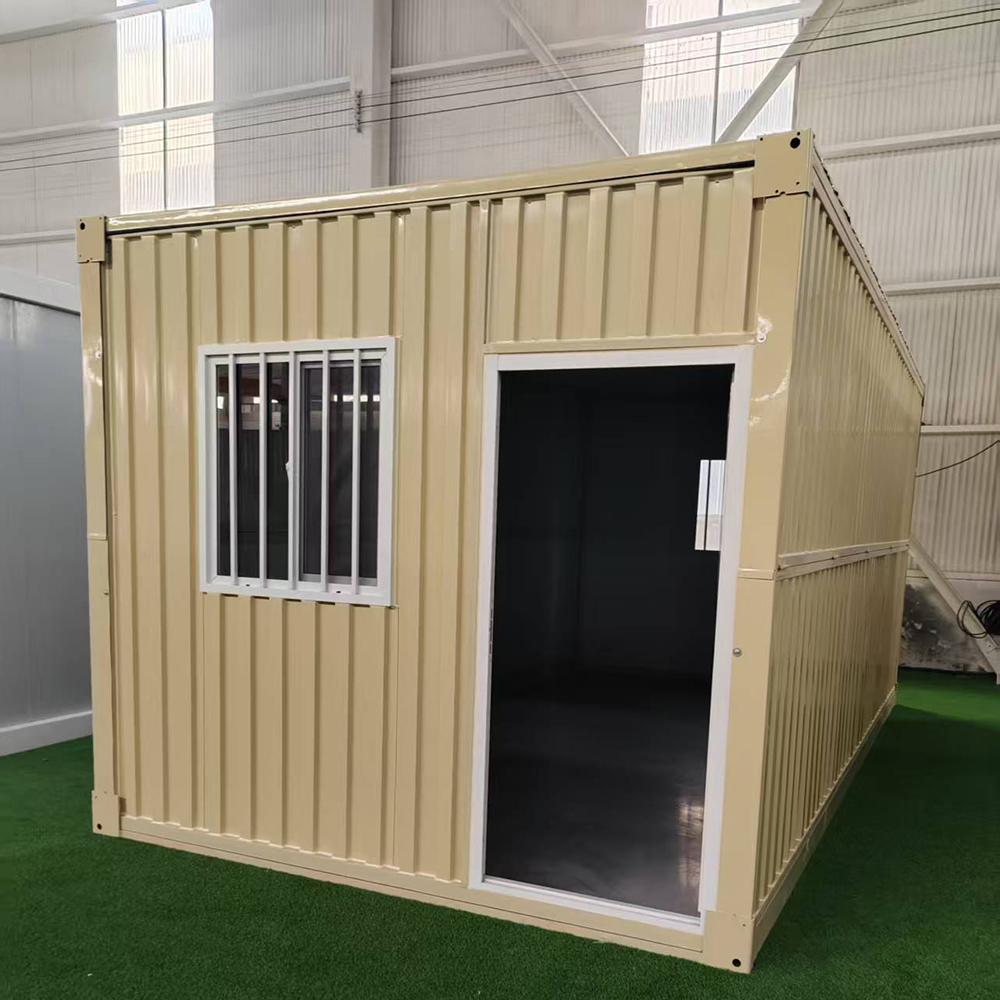 Competitive Price Portable Container House Foldable Container Mobile Living Modular Homes
Competitive Price Portable Container House Foldable Container Mobile Living Modular Homes -
 Hot-selling foldable container houses, expandable prefabricated houses, suitable for office or living use, with fast delivery.
Hot-selling foldable container houses, expandable prefabricated houses, suitable for office or living use, with fast delivery. -
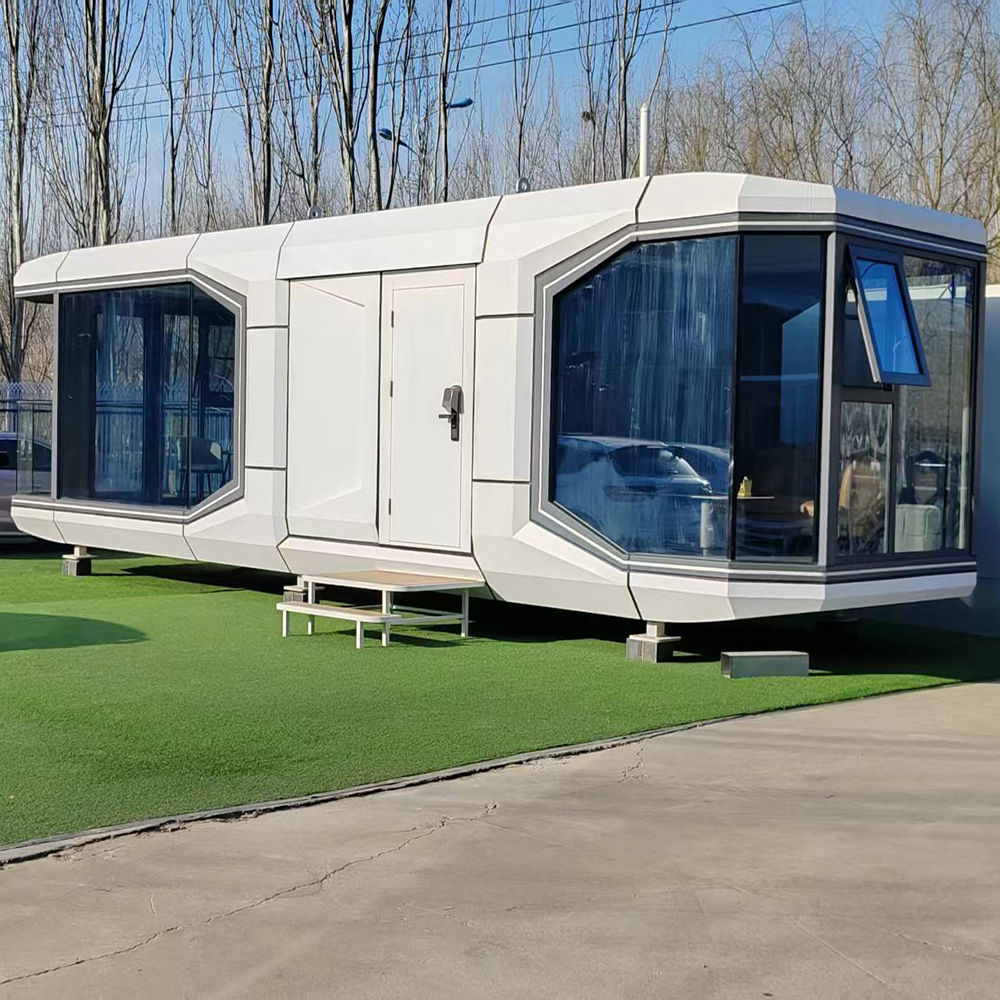 Luxury High Quality 2 Bedroom Container Home Prefabricated Steel Space Capsule for Office Shop Hotel or Outdoor House
Luxury High Quality 2 Bedroom Container Home Prefabricated Steel Space Capsule for Office Shop Hotel or Outdoor House -
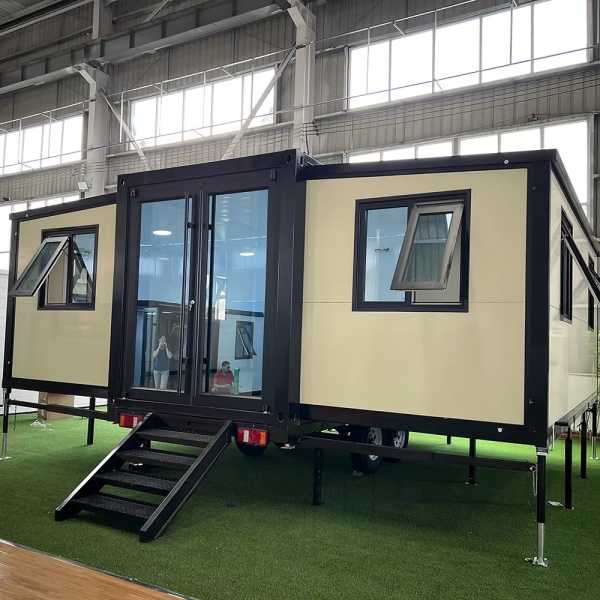 Stair Access Double Wing Expandable Container House | Easy Installation Mobile Office
Stair Access Double Wing Expandable Container House | Easy Installation Mobile Office -
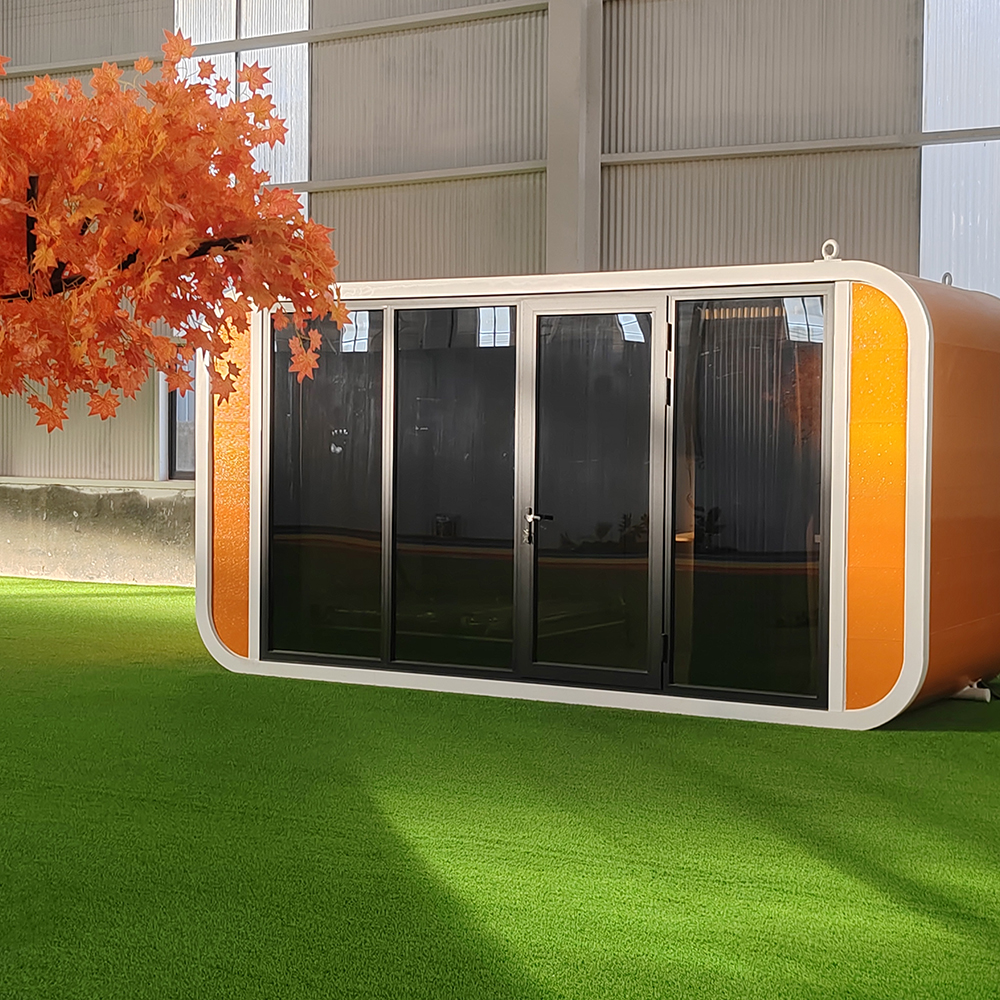 Luxury Prefabricated Living Container House Modular Glass Tiny House Prefab Container Home Apple Cabin
Luxury Prefabricated Living Container House Modular Glass Tiny House Prefab Container Home Apple Cabin -
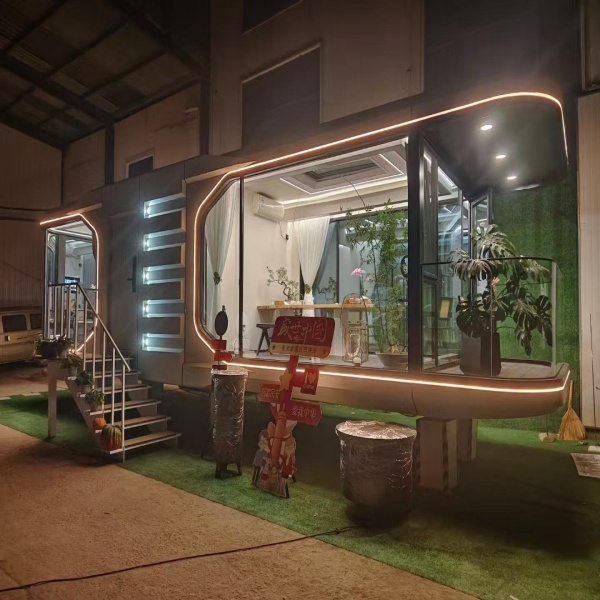 Outdoor ecological capsule rooms, luxury pods, space capsule hotel rooms, prefabricated space capsules, container houses
Outdoor ecological capsule rooms, luxury pods, space capsule hotel rooms, prefabricated space capsules, container houses -
 Customized Two Wing Folding Expandable Container House
Customized Two Wing Folding Expandable Container House -
 Customized Expandable Container House Holiday Home Folding Prefab Container House with Bathroom and Kitchen
Customized Expandable Container House Holiday Home Folding Prefab Container House with Bathroom and Kitchen -
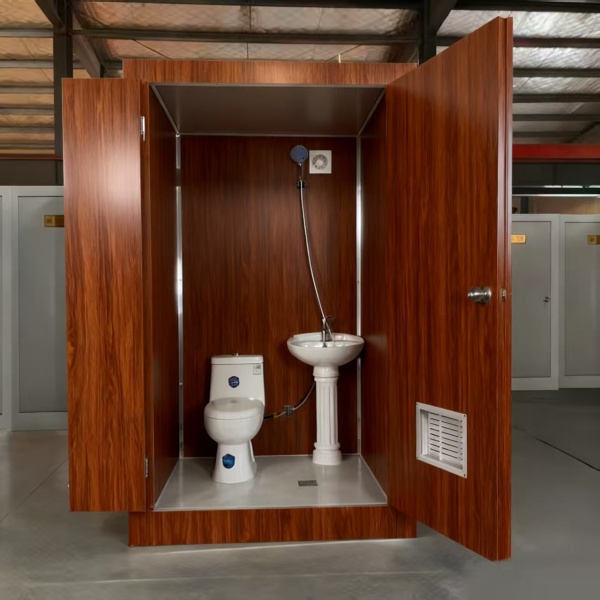 Portable outdoor camping bathroom, mobile toilet, prefabricated modular villa & rental of outdoor and indoor showers
Portable outdoor camping bathroom, mobile toilet, prefabricated modular villa & rental of outdoor and indoor showers -
 Reasonable Price 1 Bedroom Modular Container House Folding Container Home for Villa or Apartment Use
Reasonable Price 1 Bedroom Modular Container House Folding Container Home for Villa or Apartment Use
Related search
Related search- prefabricated house container
- Buy folding caravan container house
- Buy expandable prefab mobile house prefab home 19x20ft mobile home
- apple creek cabins
- Buy prefabricated containers house 20ft
- Buy apple cabin modular house
- Apple Cabin
- apple modular cabin
- Buy detachable apple cabin house
- China fold out shipping container homes










